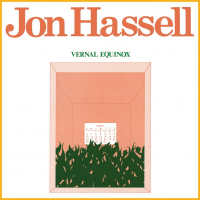Home » Jazz Musicians » Nana Vasconcelos
Nana Vasconcelos
Premier percussionist Nana Vasconcelos was an innovator in the fusion of Brazilian rhythms and jazz in the 1970’s. Born in Recife on the Northeast Coast of Brazil and, after a lifetime of playing throughout the world, his roots are apparent in everything he plays.
When Nana was 12-years-old he began playing with his father, a guitarist, and in the city's marching band. Prodded by intense curiosity and an inquisitive ear that led him from the music of Brazil's greatest composer, Villa Lobos, to Jimi Hendrix, Nana came to learn all the Brazialian percussion instruments and, by the early Sixties, came to specialize in the berimbau. He has taken this instrument far beyond its traditional uses and is acknowledge as its foremost player.
After playing in every imaginable context from symphonic orchestras to street bands in his hometown, Nana moved to Rio de Janeiro and began to play with one of Brazil's greatest singers, Milton Nascimento. In 1970 the Argentinian tenor player Gato Barbieri was in Rio and invited Nana to join his band. They played in New York and then toured Europe, starting at the Montreux Jazz Festival where Nana caused a sensation. When the tour finished Nana decided to stay in Paris. During his time in the city he made his first recording, “Africa Deus.” Nana returned to Brazil and recorded his album, “Amazonas,” and began a collaboration with guitarist Egberto Gismonti that lasted for eight years and produced three albums of duets. Back in New York he formed Codona with Don Cherry and Collin Walcott, as well as touring and recording with Pat Metheny's band. Since 1975 Nana has recorded with everyone from B.B. King to Jean Luc Ponty to the Talking Heads, but has never allowed himself to become a studio musician. His contributions to each project are special and go beyond the usual role allotted a percussionist.
While working with Gismonti, Nana recorded his third record, “Saudades,” in 1979, where he is accompanied by a symphony orchestra. In 1983 he released “Zumbi,” an album where he highlighted his work with voices and "body percussion", using the sounds only he can make by slapping and otherwise provoking his own body.
In 1983 he began to work with drum machines after being inspired by the break-dancing scene going on around him. He toured Europe with a group of break dancers from the South Bronx. Nana's very original use of the drum machine is distinguished by an unusually careful tuning that makes it sound almost organic and by his ability to play it live, typing out polyrhythms instead of programming them layer by layer.
Read moreTags
Vernal Equinox

by Doug Collette
In making Vernal Equinox available on vinyl for the first time in forty-two years and on CD for the first time in three decades, Jon Hassell's 1977 album has been fully remastered for its updated release on the artist's own Ndeya label. This first commercially released work by Hassell was, by many accounts, an early glimpse into a sound that would later go on to be known as 'Fourth World,' a mix of electronics, jazz, classical Indian music field recordings ...
Continue ReadingJon Hassell: Vernal Equinox

by Mark Sullivan
Visionary trumpeter-composer Jon Hassell is one of the architects of what has come to be called World Music: his own preferred term is Fourth World, which he described as “a unified primitive/futuristic sound combining features of world ethnic styles with advanced electronic techniques." Vernal Equinox was his first commercial album release, originally on Lovely Music in 1977. The second release on Hassell's own Ndeya label—following the 2018 Listening To Pictures (Pentimento Volume One)—this reissue makes the album available on vinyl ...
Continue Reading
























